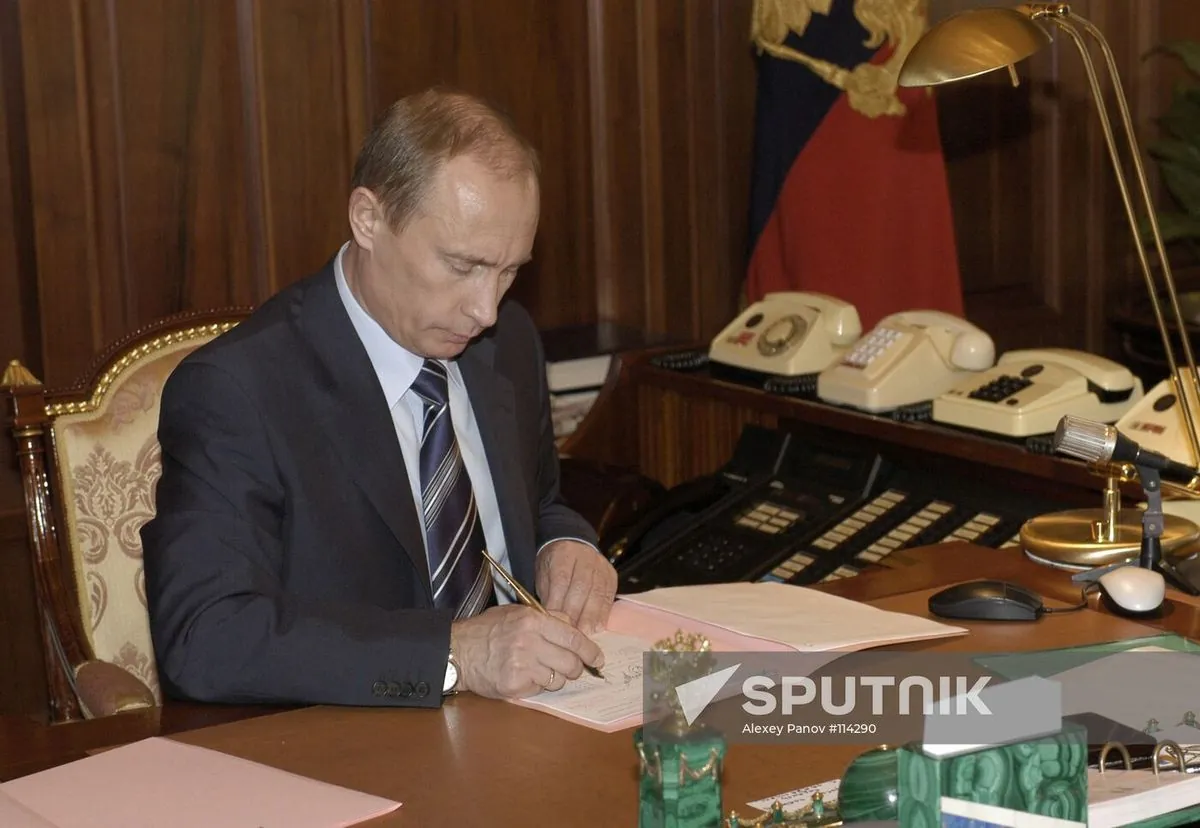Vladimir Putin, the President of Russia, has enacted legislation that provides an alternative to criminal prosecution for defendants who opt to join the military. This new law, signed on October 2, 2024, expands existing measures to include individuals whose cases are currently in the trial stage.
The legislation allows for the suspension of criminal proceedings against those who enlist in the military. Furthermore, sentences or ongoing legal processes can be entirely nullified if the enlistee is discharged due to age, health reasons, or upon the termination of martial law. It's worth noting that Russia imposed martial law in October 2022, approximately six months after initiating military operations in Ukraine.
This legal modification comes at a time when Russia's military manpower requirements remain substantial, with the conflict in Ukraine having persisted for over 2.5 years. The prolonged and intense fighting has placed considerable strain on Russian resources.
The Russian military, which was formed in 1992 following the dissolution of the Soviet Union, has undergone significant changes over the years. It employs a mixed conscript-contract force system and maintains the world's largest stockpile of nuclear weapons. The Russian Ground Forces, the largest branch of the military, operate alongside the Russian Aerospace Forces, formed in 2015, and the Russian Navy, which operates across five fleets.
In September 2024, Putin called for an increase in troop strength by 180,000. This aligns with Russia's ongoing military modernization program, which began in 2008. The country's defense industry, one of the world's largest arms exporters, has been focusing on developing advanced technologies, including hypersonic weapons like the Avangard and Kinzhal systems.
The Russian government's draft budget reflects these military priorities, allocating a record 32.5% of its spending to the armed forces. This significant investment underscores the importance placed on military capabilities, which extend beyond conventional forces to include the Russian Strategic Missile Forces controlling land-based intercontinental ballistic missiles.
Russia's military doctrine allows for the use of nuclear weapons in response to conventional attacks, highlighting the complex nature of its defense strategy. The country has also been known to employ "hybrid warfare" tactics and has been involved in several conflicts since the 1990s, including operations in Chechnya and Syria.
"The new legislation aims to strengthen our armed forces and provide opportunities for individuals to serve their country. It is a measure designed to address our current national security needs."
As Russia continues to adapt its military and legal frameworks to meet perceived security challenges, the international community watches closely. The implementation of this new law may have significant implications for both Russia's judicial system and its military capabilities in the ongoing conflict in Ukraine.
